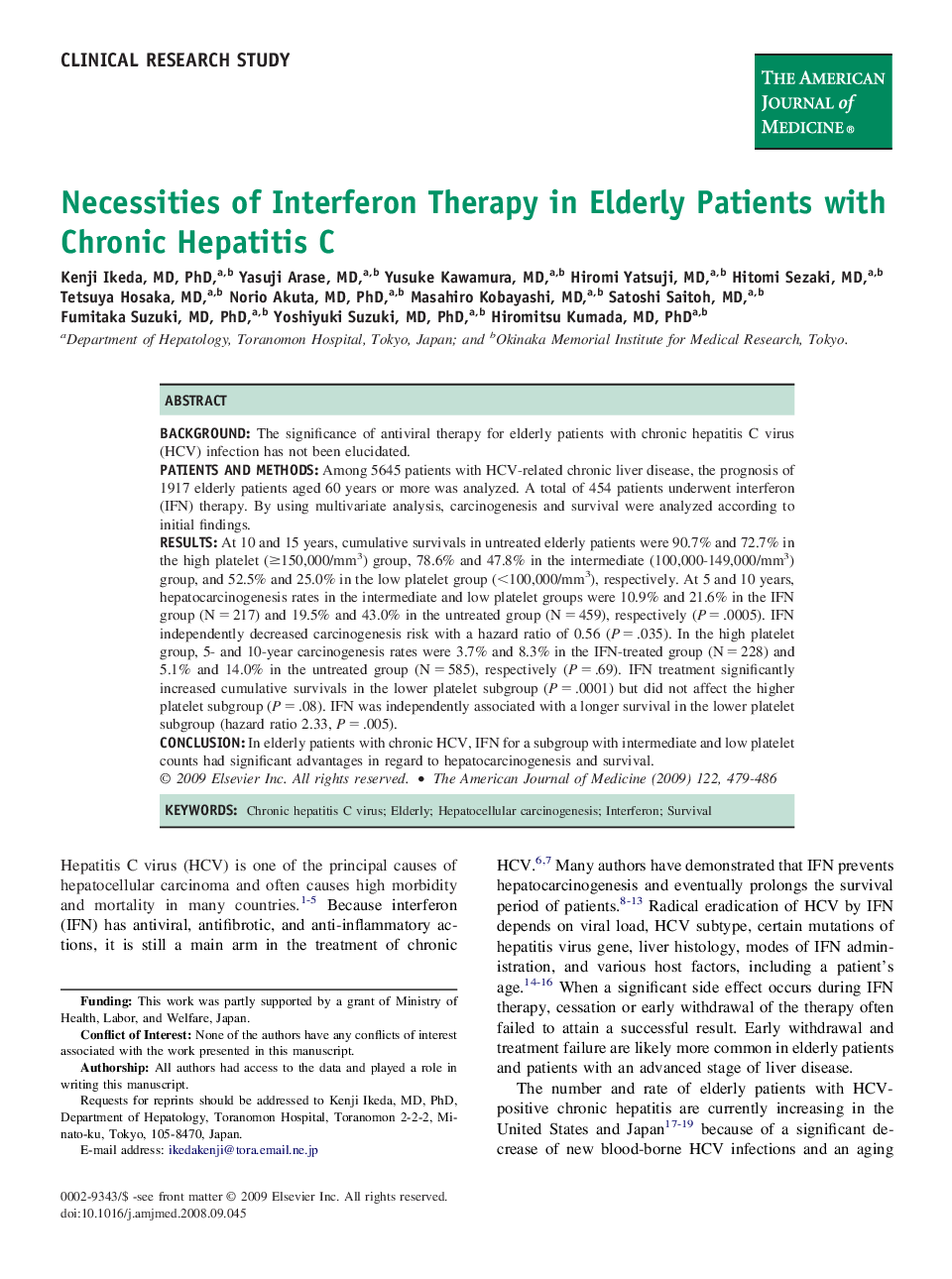| Article ID | Journal | Published Year | Pages | File Type |
|---|---|---|---|---|
| 2724553 | The American Journal of Medicine | 2009 | 8 Pages |
BackgroundThe significance of antiviral therapy for elderly patients with chronic hepatitis C virus (HCV) infection has not been elucidated.Patients and MethodsAmong 5645 patients with HCV-related chronic liver disease, the prognosis of 1917 elderly patients aged 60 years or more was analyzed. A total of 454 patients underwent interferon (IFN) therapy. By using multivariate analysis, carcinogenesis and survival were analyzed according to initial findings.ResultsAt 10 and 15 years, cumulative survivals in untreated elderly patients were 90.7% and 72.7% in the high platelet (≥150,000/mm3) group, 78.6% and 47.8% in the intermediate (100,000-149,000/mm3) group, and 52.5% and 25.0% in the low platelet group (<100,000/mm3), respectively. At 5 and 10 years, hepatocarcinogenesis rates in the intermediate and low platelet groups were 10.9% and 21.6% in the IFN group (N = 217) and 19.5% and 43.0% in the untreated group (N = 459), respectively (P = .0005). IFN independently decreased carcinogenesis risk with a hazard ratio of 0.56 (P = .035). In the high platelet group, 5- and 10-year carcinogenesis rates were 3.7% and 8.3% in the IFN-treated group (N = 228) and 5.1% and 14.0% in the untreated group (N = 585), respectively (P = .69). IFN treatment significantly increased cumulative survivals in the lower platelet subgroup (P = .0001) but did not affect the higher platelet subgroup (P = .08). IFN was independently associated with a longer survival in the lower platelet subgroup (hazard ratio 2.33, P = .005).ConclusionIn elderly patients with chronic HCV, IFN for a subgroup with intermediate and low platelet counts had significant advantages in regard to hepatocarcinogenesis and survival.
